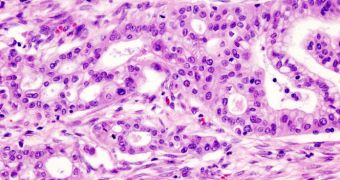A group of experts is convinced that it has discovered the key to prediction the onset of cancer early on. They say that their findings could also bring the goal of personalized medicine closer to reality. What the group did is find the order in which genetic aberrations accumulate and lead to cancer.
Armed with this new knowledge, experts can now conceivably create tests that would show how far down the line a patient is, in displaying the indicators that could be processed to reveal their risk of developing cancer.
For instance, if scientists know that a certain sequence of mutations need to be detected in order for a person to be qualified as sick or at high risk, they can see how far along the line that person is. If they only display 6 of 10 mutations, for example, then oncologists can say they detected cancer prematurely.
With this approach, it may soon become possible to create new, personalized treatments for patients suffering of different types of cancer. Such therapies would yield far better results than simply addressing the same condition with the same course of treatment in all patients.
Details of the new investigation were published in the latest issue of Cancer Discovery, which is the newest journal published by the American Association for Cancer Research (AACR).
The study was carried out by experts at the University of California in San Francisco (UCSF), the Oregon Health & Science University (OHSU), the University of California in Berkley (UCB) and the Samsung Advanced Institute of Technology (SAIT).
“We know that each cancer is a collection of genetic malfunctions. We now show it is possible to determine which changes happen earlier and which ones happen further down the road, even in a single cancer,” says UCSF Department of Dermatology assistant clinical professor Raymond Cho, PhD.
“Although cancers carry many mutations, the ones that always happen earliest set the stage for additional abnormalities,” Cho explains, adding that his team focused its efforts on the well known oncogene TP53.

 14 DAY TRIAL //
14 DAY TRIAL //